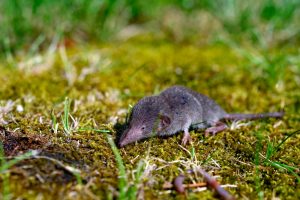Body odour is a common concern that varies significantly among individuals. Remarkably, South Koreans and Japanese tend to have lesser body odour than people from other regions.
What’s the secret behind this phenomenon? Read on to uncover a fascinating genetic factor that plays a crucial role in this difference.
The ABCC11 Gene: A Pivotal Player
The secret behind the lesser body odour among South Koreans and Japanese lies in a gene called ABCC11. It is responsible for determining the type of sweat our body produces. There are two main types of sweat glands: eccrine and apocrine. Eccrine glands produce a watery, odourless sweat, while apocrine glands secrete a thicker, more odorous substance.
Interestingly, the ABCC11 gene controls the function of apocrine glands. A specific variant of this gene, commonly found among East Asians, reduces the production of smelly sweat by limiting the activity of apocrine glands. According to scientific research, around 80-95% of Koreans and Japanese possess this gene variant.
The Science Behind the Smell: Bacteria and Sweat
To understand why the ABCC11 gene affects body odour, we must delve into the science of sweat. When we sweat, it’s not just water being released; there are also salts, proteins, and other compounds. Body odour arises when bacteria on our skin break down these compounds, releasing smelly substances in the process.
The apocrine glands, which are primarily found in areas like the armpits and groin, produce a sweat containing more proteins and lipids. These compounds are a veritable feast for bacteria, leading to a stronger odour. However, people with the ABCC11 gene variant have less active apocrine glands, thus producing less of the sweat that causes body odour.
Asian Population Data: A Clear Connection
Several studies have shown a strong correlation between the ABCC11 gene variant and East Asian populations. Research conducted by the Journal of Investigative Dermatology found that 80-95% of Koreans and Japanese carry this gene variant. In contrast, only about 2% of Europeans and 3% of Africans possess the same variant. This genetic difference helps explain why people from South Korea and Japan tend to have lesser body odour.
Cultural Practices: Complementing the Genetic Advantage
It’s essential to note that genetics isn’t the only factor influencing body odour. Personal hygiene and cultural practices also play a crucial role. South Koreans and Japanese place a strong emphasis on cleanliness, with daily bathing and frequent use of personal care products being commonplace. These practices, combined with the genetic advantage provided by the ABCC11 gene variant, contribute to the reduced body odour observed in these populations.
Conclusion: A Fascinating Blend of Genetics and Culture
In summary, the lesser body odour among South Koreans and Japanese can be traced back to a specific gene variant, ABCC11. This genetic factor limits the production of odorous sweat by reducing the activity of apocrine glands. Additionally, cultural practices focused on cleanliness further contribute to the reduced body odour in these populations. This fascinating blend of genetics and culture offers a unique insight into the complex world of human biology and diversity.












